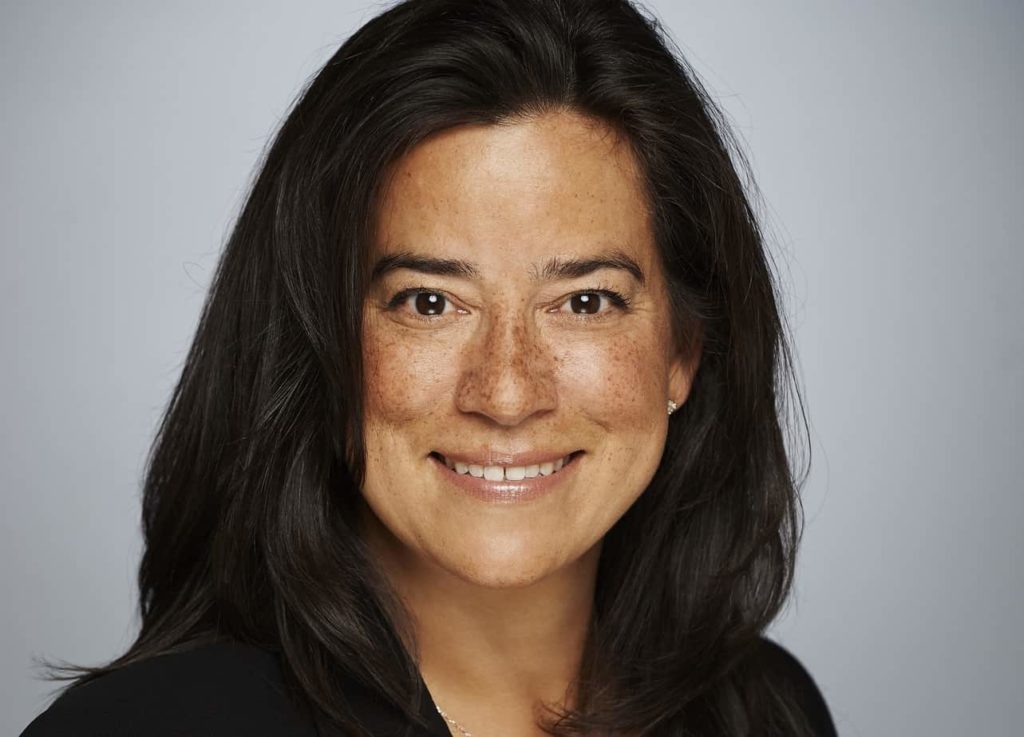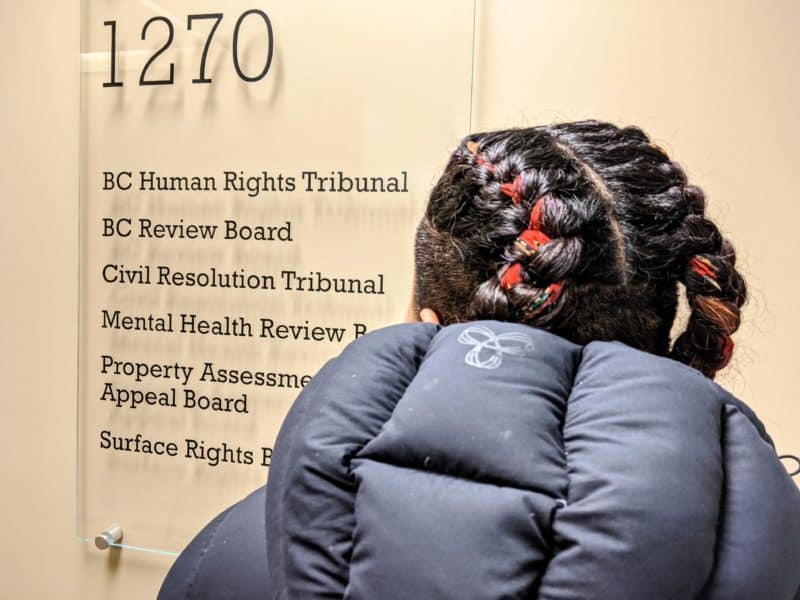
This is from our Urban Nation newsletter. You can subscribe here.
Not since key moments such as Idle No More’s launch in 2012, the national inquiry into Missing and Murdered Indigenous Women and Girls and the Truth and Reconciliation Commission’s final report in 2015 have I seen so many Indigenous people paying such close attention to what is happening in Ottawa.
Granted, the Indigeneity of former federal justice minister and attorney general Jody Wilson-Raybould didn’t explicitly come into play with the SNC-Lavalin affair until recently. But we know who she is and what guides her.
Until now, the issue centered on SNC-Lavalin as Wilson-Raybould rebuked the alleged political interference by Prime Minister Justin Trudeau and key members of his staff to protect the Quebec corporation from prosecution for allegedly engaging in inappropriate business dealings with the Libyan government.
Wilson-Raybould was shuffled out of the justice ministry and appointed veterans affairs minister on Jan. 7, 2019, after standing up to the alleged political pressure. On Feb. 12 she resigned from cabinet altogether, though she still sits as a member of the Liberal caucus in Parliament as the MP for Vancouver-Granville.
While there was some initial reflection on what the optics of her demotion could mean for the Liberals’ promise of reconciliation with Indigenous Peoples — not to mention Trudeau’s claims of being a feminist — Wilson-Raybould’s Indigeneity seemed to initially be overshadowed by the broader issues of what the political fallout of the scandal would be, and how it could affect this fall’s federal election.
The exception might be the not-so-veiled accusations levelled against her by some unnamed party insiders who essentially accused her of being a strong Indigenous woman in this Canadian Press story, which described her as “a thorn in the side of the cabinet” and “difficult to get along with.” The Union of B.C. Indian Chiefs promptly called on Trudeau to “immediately and categorically publicly condemn the racist and sexist innuendo about Minister Jody Wilson-Raybould that is being spread by unnamed elected officials and staff of your government in media reports.”
But public opinion in news reports has generally supported Wilson-Raybould’s actions, as far as I can tell. Television news reports in particular that involved canvassing opinions from streeters showed support for Wilson-Raybould crossed race, gender and age lines. There seems to be near universal respect for her and her display of integrity.

Her Indigeneity finally became more explicitly prominent in the conclusion of her testimony on Feb. 27 before the House of Commons justice committee about allegations of political interference in the SNC-Lavalin matter.
“I will conclude by saying this: I was taught to always be careful what you say because you cannot take it back. I was taught to always hold true to your core values and principles and to act with integrity. These are the teachings of my parents, my grandparents and my community. I come from a long line of matriarchs and I’m a truth teller, in accordance with the laws and traditions of our Big House. This is who I am and this is who I always will be. Gilakas’la/Thank you.”
Wilson-Raybould’s Indigeneity may not have been part of the SNC-Lavalin affair itself, but with those words, the core traditional teachings and values that guide her in all her decisions shine through. Whether others see it or not, those Indigenous values have shaped her integrity throughout.
Of course, she isn’t without critics. Indigenous academic Hayden King, who heads the Yellowhead Institute at Ryerson University, says Wilson-Raybould has been part of a government machinery that has thwarted Indigenous aspiration.
But as a proud member of the We Wai Kai First Nation, who descends from the Musgamagw Tsawataineuk and Laich-Kwil-Tach peoples, Wilson-Raybould also brings an Indigenous way of understanding to Parliament.
I think many of us can relate to the laws, protocols and teachings she was raised with, particularly those of our people who come from matriarchal cultures. Whether we realize it not, they shape who we are and how we make decisions. This, in part, explains why we’re so transfixed by what’s unfolding in Ottawa right now.
Moreover, Wilson-Raybould is in the eye of a very old rage. Since the dawn of colonization and the imposition of the Indian Act on Indigenous people, the federal government has had its boot on the collective neck of our people. Now the boot is on the governing party’s neck, it’s an Indigenous woman wearing it and we want this moment to last.
In a moment when courage of conviction was needed, it came from our teachings. That moment doesn’t validate them because we’ve known their validity all along. Instead, the value of our teachings now takes on greater meaning that will hopefully last beyond the SNC-Lavalin affair.
People are talking about
-
In this opinion piece from The Tyee, Nuu-chah-nulth Tribal Council President Judith Sayers writes that Jody Wilson-Raybould’s actions are guided by Indigenous laws and traditions. “What we have witnessed is a strong Indigenous woman telling her truth, guided by Indigenous laws,” Sayers writes.
-
In this Globe and Mail opinion piece, Indigenous academic Hayden King writes that Jody Wilson-Raybould’s actions must be understood in the context of her being part of a government that doesn’t respect the rule of law with Indigenous issues. “How can all of this be reconciled?” he asks.
-
After publicly expressing her support for Jody Wilson-Raybould, Treasury Board President (and former Indigenous services minister) Jane Philpott announced her resignation from Liberal cabinet on Monday, citing her loss of confidence in the government’s alleged handling of the SNC-Lavalin affair. In this National Post opinion piece, columnist John Ivison says Philpott’s resignation “just gave Justin Trudeau a lesson in doing politics differently.”
-
CBC Unreserved ran a week of podcasts in February about navigating the Indigenous love life. Everything from romance novels to online Indigenous love to “the art of the snag” (yes, that’s what they wrote).
Let’s gather
-
March 8: The Pacific Association of First Nations Women hosts Matriarch Teachings by Wendy Hill, a traditional healer, mediator, and author from the Cayuga Nation and Bear Clan, for International Women’s Day. “Indigenous women from all walks of life are invited to join us for an afternoon and evening of traditional teachings for women. Elders and youth are especially invited to join us,” organizers say. 1 to 8:30 p.m. at the Vancouver Aboriginal Friendship Centre. Tickets are free but register before they run out.
-
March 8: Options for Sexual Health and Battered Women Support Services present this International Women’s Day event featuring three short films by director Camille Hollett-French. Her Story (In Three Parts) looks at “the value of choice and safety in the world of all women,” as the films explore issues of sexual violence, abortion and incarceration through the eyes of three young women in Vancouver, Toronto and Montreal. Discussion panels after each film will centre women’s resilience and look at the role that community supports can play. 7 to 9 p.m. at the Djavad Mofwfaghian Theatre at the SFU Goldcorp Centre for the Arts, doors open at 6:15pm. Tickets on a sliding scale of $5 to 15 available here.
-
March 8: The Discourse is hosting a community conversation in Cowichan on the child-welfare system and how the media can do a better job covering it. Cowichan community reporter Jacqueline Ronson will be present to listen to your insights on what’s excluded from the debate, hear your perspectives and facilitate a collective brainstorm on solutions to the challenges associated with reporting on this complex system. This is a safe space for youth in/from care, birth parents, foster parents, social workers and policy makers, advocates and concerned community members. 6 to 8:30 p.m. at the United Church in Duncan.
-
March 9: Growing Room 2019: Indigenous Brilliance presents an all-day celebration of Indigenous expressions by poets, writers, singers, visual artists, academics, beadworkers, medicine makers, and more from 11:15 a.m. to 8:30 p.m at the Red Gate Revue Stage on Johnston Street, Granville Island. It’s part of the Growing Room feminist literary festival, which runs until March 17. Tickets are pay what you can (organizers recommend $12.50 per reading, or $40 for the day).
-
March 10: The NorthWest Indigenous Council is hosting “a dialogue session with status and non-status First Nations, Indigenous groups, and impacted individuals to provide a brief look at Bill S-3 amendments to the Indian Act registration provisions and to gain input on the implementation of upcoming changes including Band Membership and First Nation Citizenship.” 9:30 a.m. to 4 p.m. at The Hall at 1739 Venables St. Tickets are free but register here on Facebook.
If you know about an event that you think should be included in this newsletter next week, send me an email.
And if you like this newsletter, help us build this community by inviting your friends to subscribe. We value your feedback.[end]



